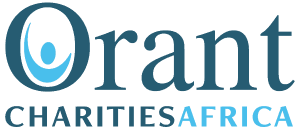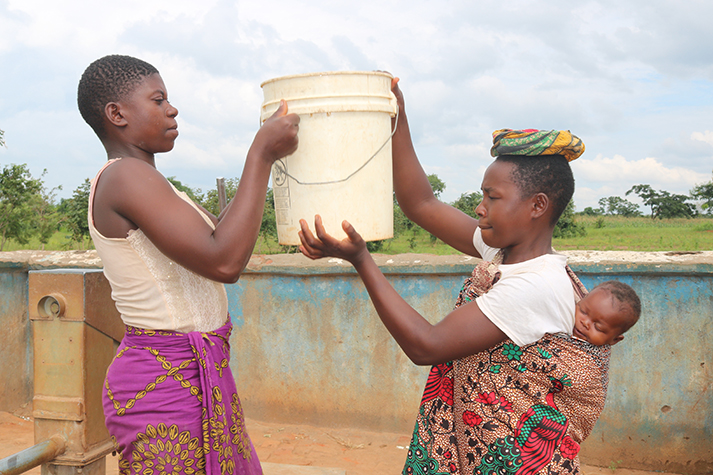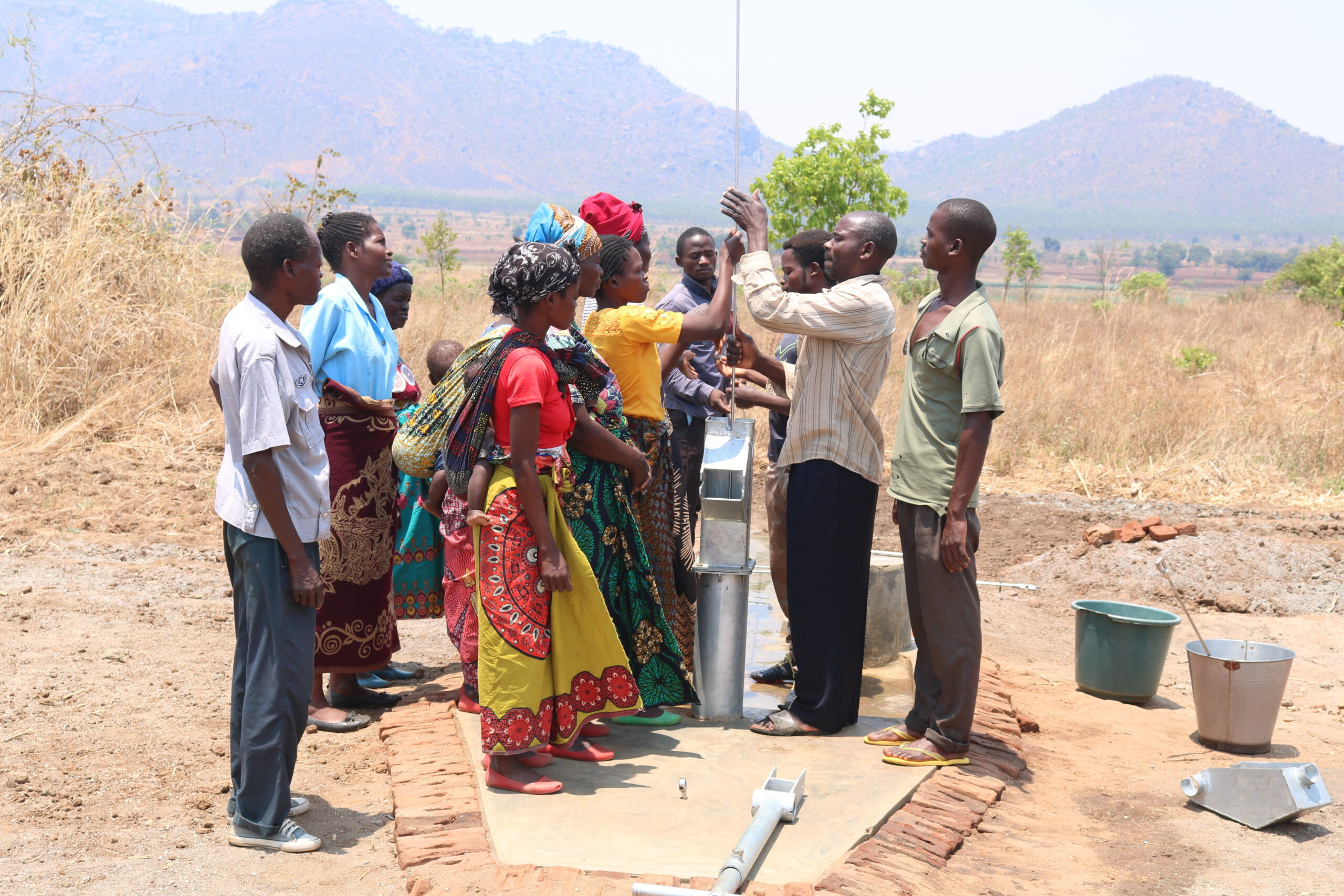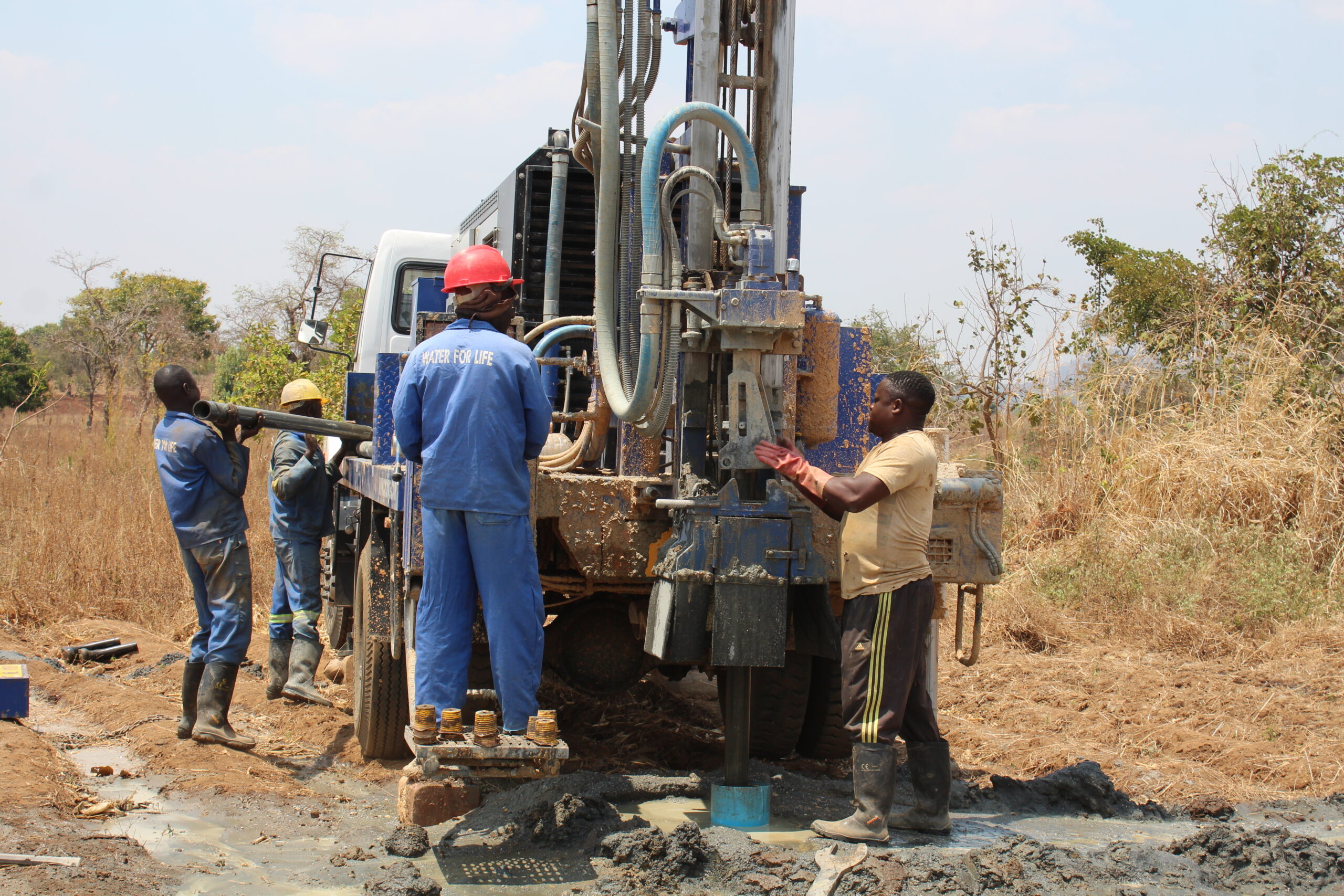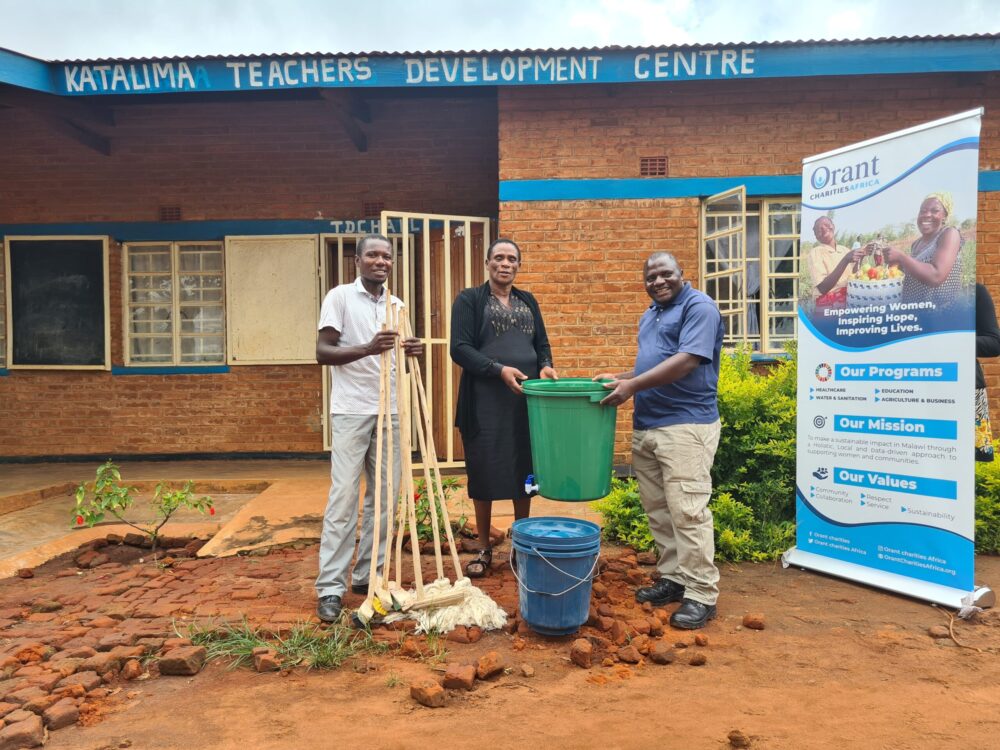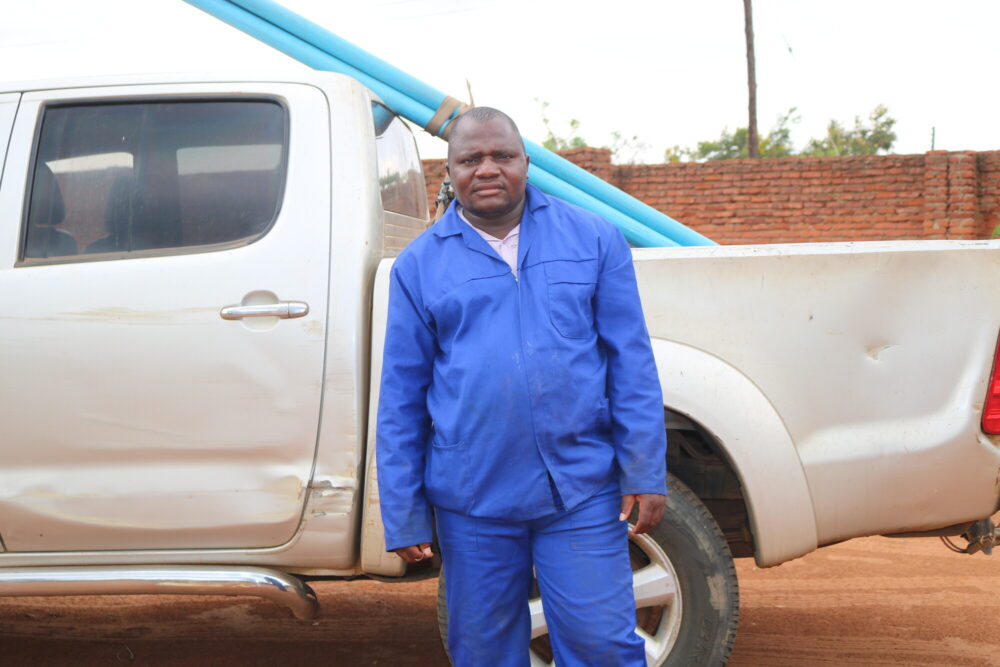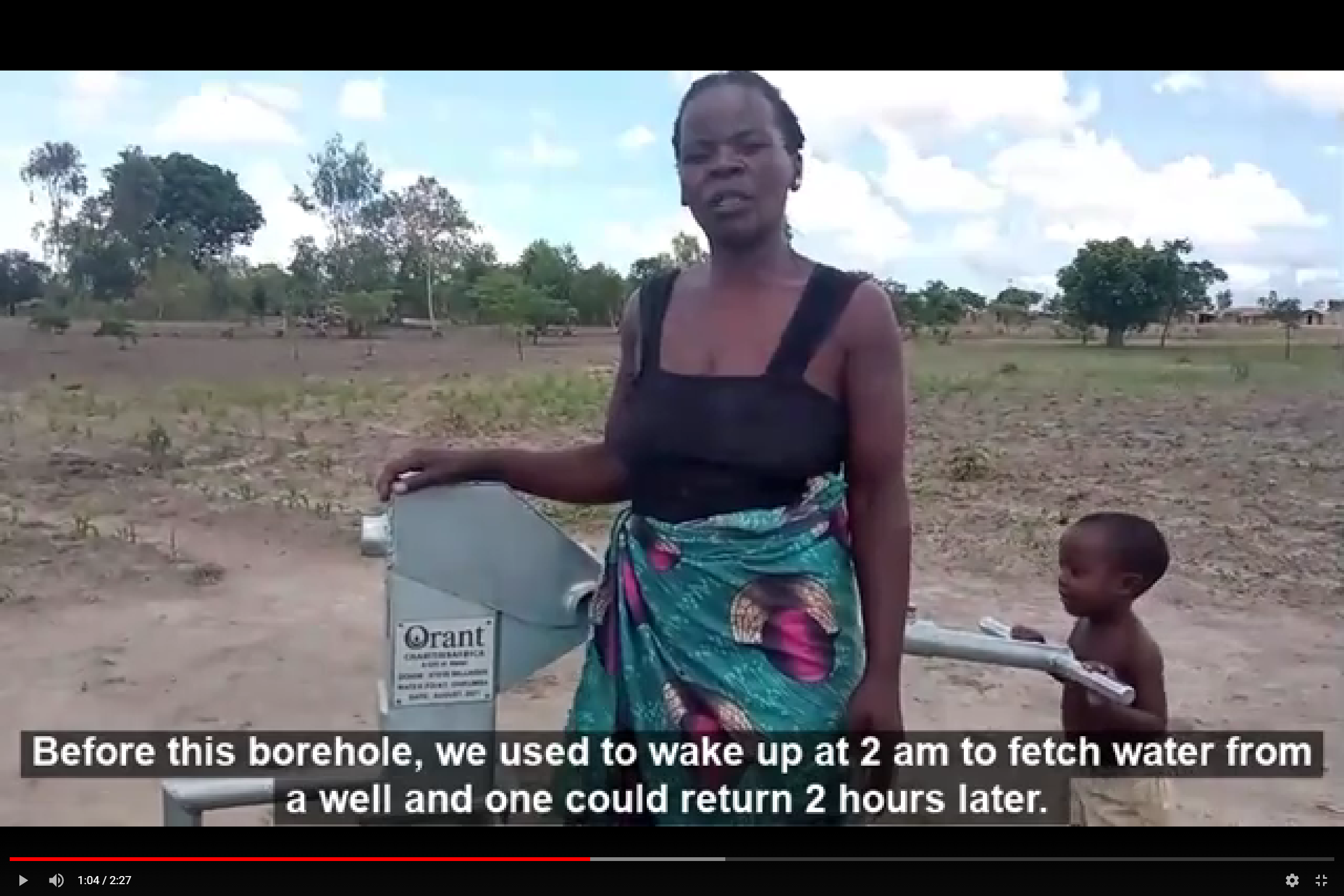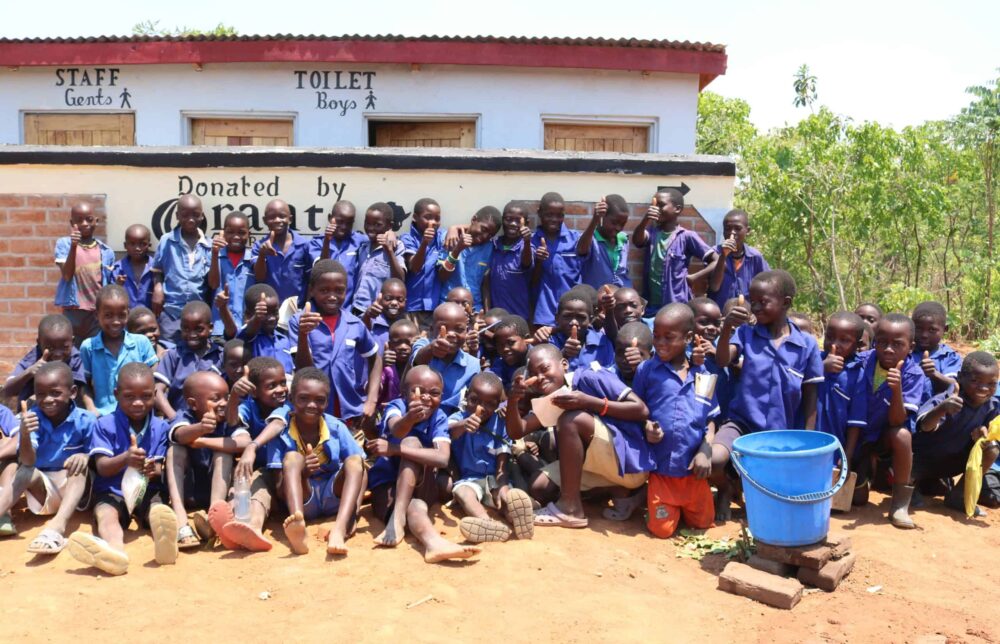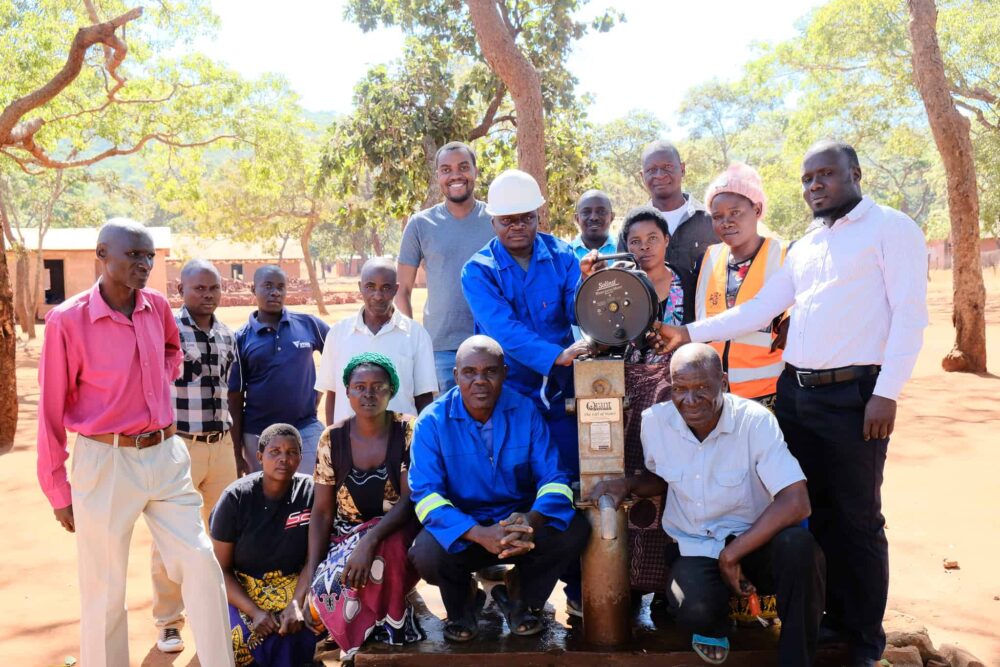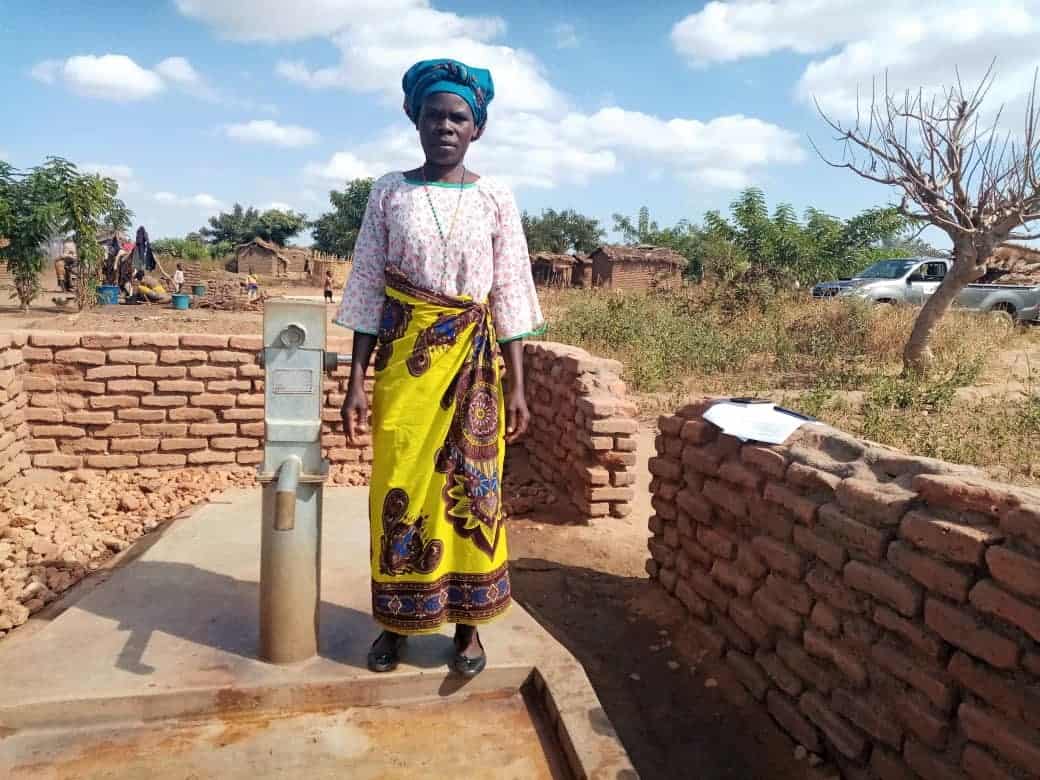Every year on the 22nd of March, the world commemorates World Water Day as a way of raising awareness of major water-related issues and to inspire action to tackle the water and sanitation crisis. This year’s World Water Day is themed “Water for Peace.” Read our blog article to learn more about what our WASH program is doing to promote peace and foster harmony.
Water is an Issue of Gender
A Story from Dowa, Malawi
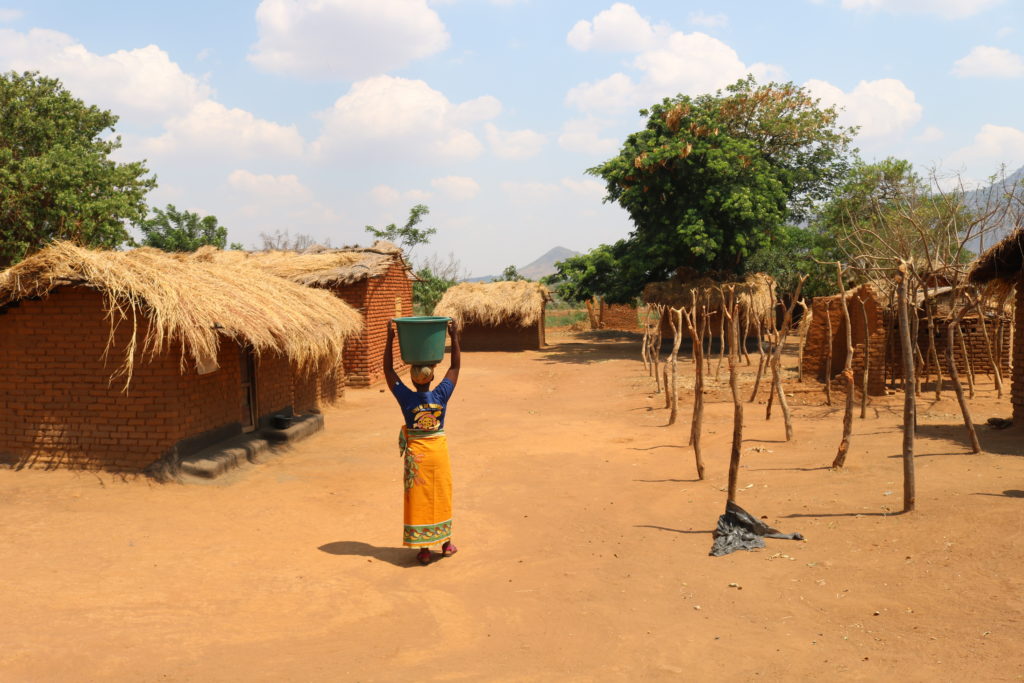
One Tuesday in 2019 remains an unforgettable day in Malita Chimbalame’s life.
“It took me so long to return home from drawing water that my husband locked me out of the house,” says Malita.
Aged 42, Malita left home to draw water from her usual source, Katayamphasa River. Because of the dry season, this process took almost 5 hours.
“The wells along the river could go dry after filling only two or three buckets,” explains Malita. “We had to wait in line for the groundwater to refill the well.
“On this day I left home at 6 am. I had no option but to wait. My turn finally came. I was happy to go back home with water. I got back at 11 am.”
Despite her achievement, she found her husband furious.
Malita’s situation mirrors those of many other women in rural areas.
Water insecurity remains a challenge in Malawi. Women and girls bear the brunt of the situation. To make matters worse, women and girls are subject to gender based violence, including sexual exploitation and abuse. Walking in pre-dawn hours to gather water puts women and girls at risk of attack.
Orant Charities Africa’s Country Director Gabriel Kapanda says,
“Most girls and women in rural areas struggle to safely obtain water. Our WASH program drills boreholes as a way of making sure that women and girls are well-protected.”
So far, Orant has drilled about 60 boreholes in T/A Chakhaza. In addition, we repair over 100 wells a year.
“I am so glad for the gift of water that Orant has brought to my community,” says Yosofina Kaseleta from Mzimuwakana Village. “Not so long ago, we had high numbers of young girls dropping out of school. But they have now returned to school.”
Yosofina explains how water insecurity causes many girls to drop out of school. They find it hard to fetch water to care for themselves during menses.
The new boreholes in Yosofina’s village and surrounding areas lessened the issue of gender-based violence in homes. It also afforded women time to rest. And time to invest in other important things.
For more stories on Water & Sanitation in Malawi, visit here.
The Orant Journal
Ensuring WASH Program Sustainability Through Water Point Committees
We are excited to have trained the Chika Water Point Committee (WPC) as a way of ensuring sustainability. Read our latest blog to learn more about WPCs and the role they play.
The Challenge of Accessing Clean Water in Rural Malawi
We are excited to tell you about the new borehole our WASH program has drilled in Chika Village, T/A Njombwa in Kasungu. Read our latest blog to learn more about how this new borehole will change the lives of people in Chika Village.
Improving Health and Hygiene for Students in Malawi
Our Water and Sanitation program continues to make a significant difference in the lives of students in rural Malawi. Read our latest blog to learn about how we support hygiene initiatives in primary schools in Dowa, Malawi.
A Water Problem is a Life Problem: Interview with Yona Maloto
Yona Maloto has been a Water Field Assistant for Orant's Water & Sanitation Program since 2020. We interviewed him to learn more about his work.
Madzi ndi Moyo: Water is Life
Madzi ndi Moyo: water is life. Melina Maiko of Central Malawi reflects on the gift of water. A new water well impacts her family and village.
Making Clean Water Accessible in Malawi
Orant makes clean water accessible in rural Malawi by drilling and maintaining boreholes. In 2021, Orant drilled 15 new boreholes.
Reimagining Hygiene for Every Pupil
Poor sanitation and hygiene are major contributors to the burden of disease and school dropouts in rural schools and communities in Malawi.
Measuring Water Levels with Solinst
Orant received the Solinst Water Meter only a few weeks ago but is already putting it to use in the Water & Sanitation Program.
The Power of Community Leadership in Malawi
Agatha’s community mobilization inspires us at Orant. With leadership like hers, sustainable change in Malawi is possible.
